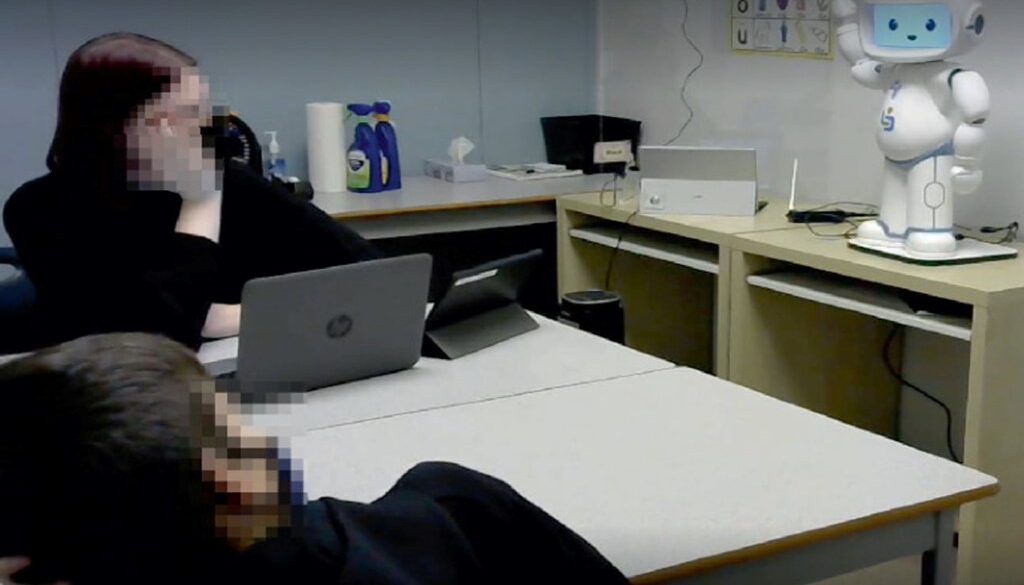
Abstract:
Learning is often more challenging for students with learning disabilities, who typically require supplementary support such as one-on-one instruction to address academic skill gaps. In this research, the researchers explored the impact of using assistive technology—a social robot—as an educational tool to support these students. The study aimed to:
a) Evaluate the acceptance of the social robot by instructors and students in a real-world educational setting.
b) Understand the impact of the robot’s intervention on student engagement during learning tasks over multiple sessions.
The researchers conducted a multi-session, between-subjects study with 16 students, comparing control and intervention conditions using the QTrobot. The qualitative analysis indicated that both instructors and students showed positive attitudes towards the social robot during their one-on-one sessions. Additionally, students were more engaged with their tasks and displayed fewer off-task behaviors in the intervention condition compared to the control condition.
These results suggest that a social robot like QTrobot can be an effective educational tool for enhancing engagement and reducing off-task behaviors in students with learning disabilities.
Reference:
Negin Azizi, Shruti Chandra, Mike Gray, Jennifer Fane, Melissa Sager, and Kerstin Dautenhahn. 2023. User Evaluation of Social Robots as a Tool in One-to-One Instructional Settings for Students with Learning Disabilities. In Social Robotics: 14th International Conference, ICSR 2022, Florence, Italy, December 13–16, 2022, Proceedings, Part II. Springer-Verlag, Berlin, Heidelberg, 146–159. https://doi.org/10.1007/978-3-031-24670-8_14